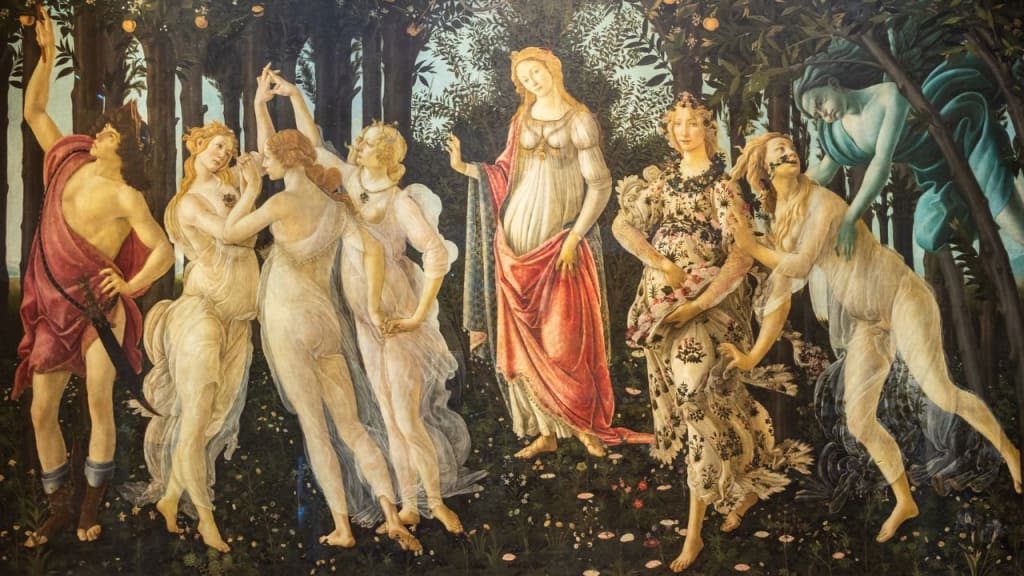"The Renaissance Chronicles: Art, Science, and Humanism"
Unveiling the Renaissance's Legacy of Innovation, Expression, and Human Flourishing

In the tapestry of history, the Renaissance stands as a radiant era that illuminated the darkness of the Middle Ages, ushering in a rebirth of art, science, and humanism. Spanning roughly from the 14th to the 17th century, this transformative period witnessed an unprecedented resurgence of intellectual and creative pursuits, laying the foundation for the modern world we inhabit today.
At the heart of the Renaissance was a fervent desire to rediscover the wisdom of classical antiquity. As manuscripts of ancient Greek and Roman texts were unearthed from monastic libraries and translated into vernacular languages, a newfound appreciation for the humanities flourished. The revival of classical learning gave rise to humanism—a philosophical movement that celebrated the inherent dignity and potential of humanity.
One of the epicenters of this cultural revival was Florence, Italy. The Medicis, a wealthy and influential family, patronized artists, scholars, and thinkers, fostering an environment where creativity thrived. The city became a melting pot of ideas, where luminaries such as Leonardo da Vinci, Michelangelo, and Raphael converged to redefine the boundaries of artistic expression.
Art during the Renaissance transcended mere aesthetics; it became a reflection of human potential and a vehicle for the expression of profound ideas. The canvas transformed into a mirror reflecting the complexities of the human soul. In the hands of da Vinci, art became a scientific pursuit, as seen in his anatomical sketches and detailed observations of the natural world. Michelangelo's sculptures, such as the iconic David, epitomized the fusion of classical ideals with a profound understanding of the human form.
The Renaissance not only revolutionized the visual arts but also became a crucible for scientific inquiry. The prevailing notion that the natural world was a manifestation of divine order fueled a curiosity to understand the mechanics of the universe. Visionaries like Copernicus and Galileo challenged the geocentric model, paving the way for the heliocentric understanding of our solar system.
In the realm of literature, the Renaissance gave rise to literary giants like William Shakespeare, whose plays explored the complexities of the human condition. The printing press, a technological marvel of the time, democratized access to knowledge, allowing ideas to spread rapidly across Europe. The written word became a powerful catalyst for intellectual discourse and the dissemination of revolutionary ideas.
Humanism, with its emphasis on critical thinking and the pursuit of knowledge, transcended artistic and scientific domains, influencing education and philosophy. The Renaissance humanists sought to harmonize the wisdom of classical antiquity with contemporary thought, laying the groundwork for the Enlightenment and the Scientific Revolution that would follow in the centuries to come.
While the Renaissance flourished in Italy, its echoes reverberated across Europe. In the Low Countries, the Northern Renaissance took shape, characterized by a focus on realism and detailed depictions of daily life. Artists like Jan van Eyck and Albrecht Dürer became standard-bearers of this distinct regional movement.
However, the Renaissance was not without its shadows. The same period that witnessed the flourishing of artistic and intellectual endeavors also experienced political upheaval, religious strife, and societal challenges. The Hundred Years' War, the Black Death, and the Great Schism cast shadows over the brilliance of the Renaissance, underscoring the complex interplay of light and darkness that defines human history.
As the 17th century dawned, the Renaissance gradually gave way to the Baroque era. Yet, its enduring legacy persisted. The Renaissance had kindled a flame of human creativity, critical inquiry, and cultural rejuvenation that would continue to burn brightly through subsequent ages.
In reflecting on the Renaissance, we find more than a chronological epoch; we discover a profound testament to the resilience of the human spirit. It was an era that dared to question, to explore, and to celebrate the boundless capacities of human potential. The Renaissance, with its chronicles of art, science, and humanism, remains a beacon of inspiration, reminding us that even in the darkest of times, the flame of knowledge and creativity can illuminate the path forward.
About the Creator
Andrew
I collect whispers of dreams and spin them into tales. Let me unlock the doors of your imagination. Come, turn the pages and wander through the worlds I weave.
Enjoyed the story? Support the Creator.
Subscribe for free to receive all their stories in your feed. You could also pledge your support or give them a one-off tip, letting them know you appreciate their work.






Comments
There are no comments for this story
Be the first to respond and start the conversation.